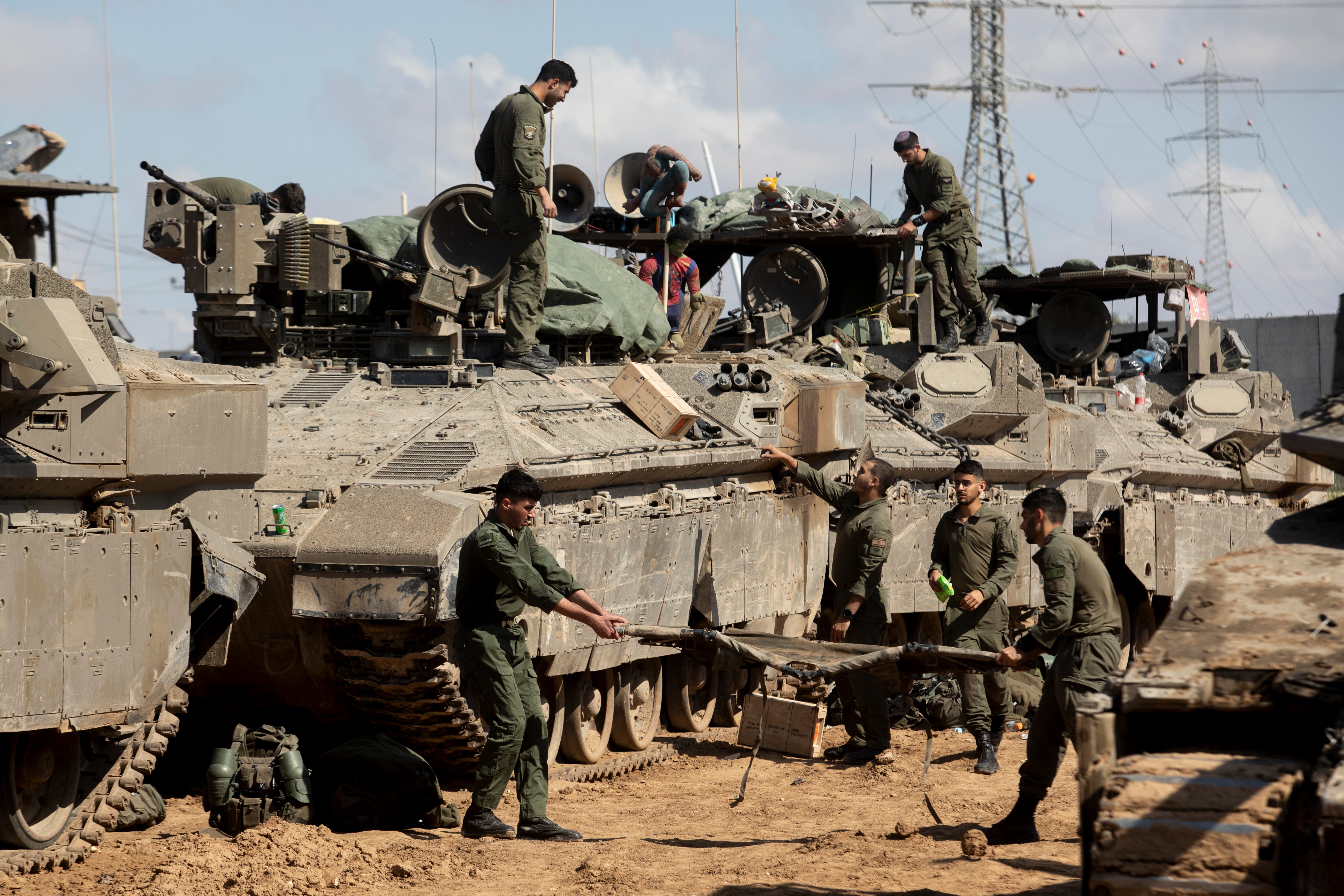‘Whoever harms us, we will harm them’: Israel warns Iran against retaliation for Syria strike
Western leaders, including the UK and US, have said their support for Israel against Iranian attacks is unwavering – despite concerns over the war in Gaza

Your support helps us to tell the story
From reproductive rights to climate change to Big Tech, The Independent is on the ground when the story is developing. Whether it's investigating the financials of Elon Musk's pro-Trump PAC or producing our latest documentary, 'The A Word', which shines a light on the American women fighting for reproductive rights, we know how important it is to parse out the facts from the messaging.
At such a critical moment in US history, we need reporters on the ground. Your donation allows us to keep sending journalists to speak to both sides of the story.
The Independent is trusted by Americans across the entire political spectrum. And unlike many other quality news outlets, we choose not to lock Americans out of our reporting and analysis with paywalls. We believe quality journalism should be available to everyone, paid for by those who can afford it.
Your support makes all the difference.Benjamin Netanyahu has vowed to retaliate against any assault on Israel’s interests as the US warned allies that Iran was close to a revenge attack for Israel’s strike on its consulate in Damascus, Syria, on 1 April.
“Whoever harms us, we will harm them. We are prepared to meet all of the security needs of the State of Israel, both defensively and offensively,” Mr Netanyahu said in comments released by his office following a visit to the Tel Nof air force base.
Iran blames Israel for killing one of Tehran’s senior generals and six other Iranian officers in the airstrike on their embassy in the Syrian capital at the start of the month. Israel has not claimed responsibility but Iran’s supreme leader, Ayatollah Ali Khamenei, vowed on Wednesday that Israel “must and shall be punished” for the attack.
Washington has warned allies that Iran’s retaliation could be imminent and has urged them to put pressure on Tehran to hold back, officials told the Financial Times. There are worries that Iran could respond directly, rather than using proxies such as Lebanon’s Hezbollah, something that would mark a significant escalation of hostilities across the region six months into the war in Gaza.
Western leaders lined up on Thursday to call on Iran to hold back. UK prime minister Rishi Sunak described the ayatollah’s comments as “unacceptable”, adding that Britain had already “highlighted Iran as a significant risk to regional security”. German foreign minister Annalena Baerbock also called her Iranian counterpart Hossein Amir-Abdollahian to urge “maximum restraint”.

Iran-backed groups have launched missiles across the border from Lebanon into Israel, at US military bases in Iraq and from Yemen at cargo ships in the Red Sea. All have expressed support for Palestinians in Gaza. Israel launched its war inside the territory after a brutal Hamas attack inside Israel on 7 October during which almost 1,200 people were killed and 253 taken hostage.
The US Middle East envoy reportedly called the foreign ministers of Saudi Arabia, the United Arab Emirates, Qatar and Iraq to ask them to deliver a message to Iran urging it to reduce tensions with Israel.
Mr Sunak, meanwhile, echoed comments by US president Joe Biden that the UK “fully supports Israel’s right to defend itself against” Iranian attacks.
During a meeting with the Japanese prime minister Fumio Kishida, Mr Biden said the US commitment to Israel’s security against threats from Iran and its proxies is “ironclad”.
But the unwavering message of support belies tensions that have been simmering between the two long-standing allies over Israel’s assault in Gaza. Mr Biden said earlier this week that he had been “very blunt” in recent talks with Mr Netanyahu about reducing Palestinian casualties.
At least 33,545 Palestinians have now been killed since the Israeli offensive began, according to the ministry, with most of the 2.1 million population displaced and much of the enclave laid to waste.
As Mr Netanyahu hinted at the nation’s willingness to fight an Iranian threat, Israeli troops and warplanes started an operation in central Gaza overnight that the military said was aimed at destroying infrastructure of armed Palestinian groups.
Most Israeli troops have been pulled out of south Gaza, in preparation for an assault on the southern Gaza city of Rafah, where more than a million Palestinians are sheltering, although fighting has continued in various areas of the enclave.
Join our commenting forum
Join thought-provoking conversations, follow other Independent readers and see their replies
Comments